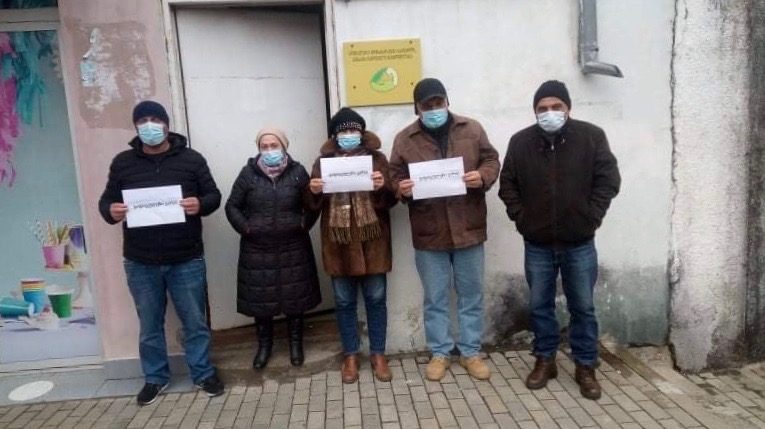Workers of the social security sector in Georgia have won a pay rise and several other rights after a historic strike. On Friday, January 21, the government agreed to the workers’ demands in a meeting between the concerned ministry and representatives of the striking workers. Over 400 social workers in Georgia went on strike from Monday, January 17, after the Ministry of Internally Displaced Persons from the Occupied Territories, Labor, Health and Social Affairs of Georgia failed to honor promises made in November 2021 to increase the workers’ rights. The strike involved almost half of the total workforce in the sector and caused a serious slowdown in the activities of the Social Security Agency.
On Friday, the union representatives stated that the government has agreed for a 40%-60% increase in salaries, the first in the last 15 years, and a paid maternity leave. It has agreed to agents being provided with transport, cancellation of short term contracts, and a special communication platform to be created between the employer and the employee. The government has also agreed to consider the strike as unpaid working hours.
The striking workers are organized by the trade union Solidarity Network, and are employed as social benefits workers, specialists, and lawyers. Together, they shoulder the responsibility of assessing social benefits claims submitted throughout the country. Despite their importance for the whole social security system, these workers continue to be employed through precarious contracts and have not received a pay increase in over 15 years, explained Sopo Japaridze from Solidarity Network.
“Considering the recent rise of prices, many of the social benefits workers are not making enough to make ends meet. In fact, some of them have had to apply for social benefits themselves to bridge the gap between income and living expenses,” said Japaridze. According to her, one of the main issues is that the social workers’ salary consists of a very small fixed amount and a variable amount depending on the amount of claims assessed. During the pandemic, since assessments became more complicated because of public health measures, workload decreased significantly, bringing the workers’ pay further down.
Out of pocket transportation
In addition to concerns over their contracts and pay, the workers had no right to transport expenses, which they pay for out of pocket. They also did not get paid maternity leave like other government workers. “Transport might be possible to arrange for those workers who live in cities. But for those who work outside of major urban areas, who sometimes have to travel on mountains and to inaccessible areas, transport expenses often end up eating their whole income,” says Japaridze.
Fed up with the situation they have been living in for years, made even worse during the pandemic with limited access to personal protective equipment and reduced income, the workers succeeded in organizing the strike through the union. They had demanded a 100% salary increase, paid transport expenses and paid maternity leave. In the long-term, they are also aiming to bring the government to the bargaining table in order to reach a collective agreement which would ensure workers’ rights in the sector are in line with those in other sectors and ensure adequate living conditions.
While the government has already agreed to a partial increase of the workers’ income and is seriously considering accepting their claims for paid maternity leave, it has been reluctant to recognize the full set of problems and requests made by the workers. The new health minister in particular remains oblivious to the importance of the social workers’ role, indicating that the official government line for post-pandemic recovery will continue to be based on the exploitation and devaluation of essential workers.
Because of this, says Japaridze, the workers’ movement will have to intensify their struggle in the months to come. Since the strike indicates that workers are no longer ready to submit themselves to unsuitable working and living conditions, they might very well succeed in securing important wins despite the opposition mounted by the employers and government.





